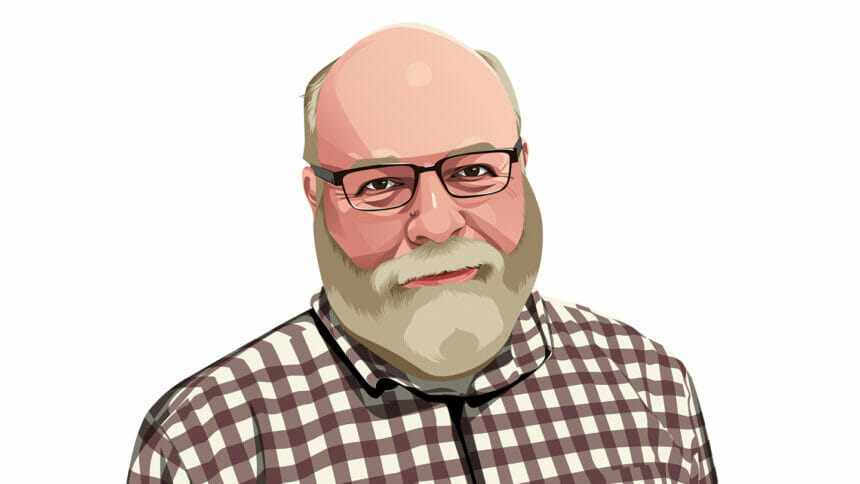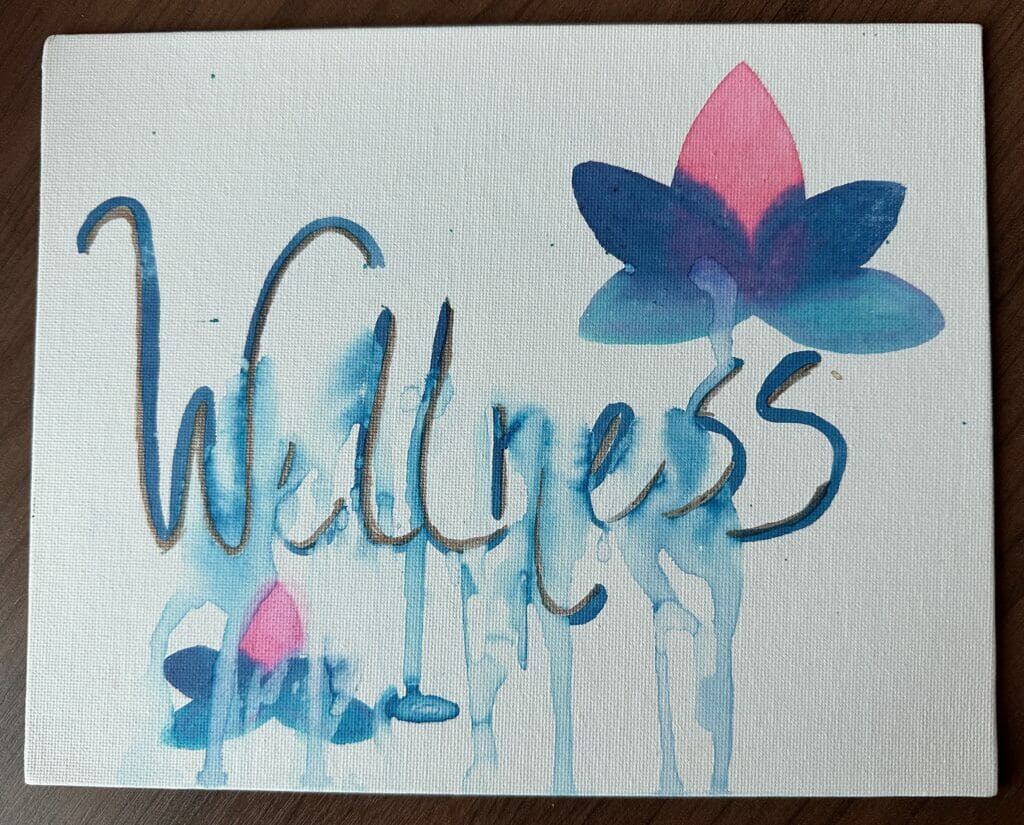
In a valiant attempt to achieve maximum personal and professional potential, and in support of her difficult job recruiting long-term care staff, a colleague of mine chooses one word every year on which to focus all self-improvement efforts.
For 2023, she selected “wellness,” and to make sure it was always top of mind, painted it on canvas and propped it up for prominent display on her office credenza. That’s where everything went horribly wrong — and yet, so right.
An accidental spill while she was watering a nearby plant made the colors run, and I happened by just as she was preparing to throw it away and paint a replacement. But recognizing a perfect message in her ruined masterpiece, I rescued it from oblivion, just in time.

Because at least in my own experience, a state of wellness usually doesn’t just suddenly disappear. It leaks, day by day, through tiny erosions of daily habits and practices. Choice by seemingly insignificant choice, it slowly oozes down the canvas of our lives, leaving a nearly unrecognizable smear of fatigue, anxiety, illness and ennui.
We’re fine until eventually we’re not, and the journey from wellness to its opposite is often imperceptible, like continental drift, or the speed of a glacier toward the sea.
Or like an oil-deprived engine driven by a clueless teen.
During my high school years, I worked on a farm, and was tasked with plowing a field with a newly-purchased John Deere tractor. Sitting proudly way up high, I circled the sector with speed and skill for hours, and had almost finished when the beast suddenly shuddered to a stop, refusing all revival efforts.
Further expert investigation concluded that a sloppily tightened plug had jostled loose, and all afternoon the oil had been slowly and invisibly dripping into the soil below. The glowing red warning light also went unnoticed, and the inevitable result was complete engine destruction — and a reassignment of the humiliated driver to washing the floor of the milking parlor.
How does a loss of wellness happen? Kind of like that.
For long-term care residents and staff alike, facing their own daunting challenges and pressures, I’m convinced that commitment to daily practices is the time-tested antidote to wellness leaks. Especially coming out of the corrosive effects of the pandemic, these small promises we make to ourselves add up to the best possible defense, supporting the proven benefits of quality sleep, diet, exercise, socialization, reflection and spiritual growth.
Some degree of unwelcome self-discipline and restraint will always also be required, of course, unlike that exhibited by the hungry museum visitor who paused to eat a $120,000 banana on display in an art museum just because he felt hungry. This is clearly not a man in control of his cravings and impulses, who is likely to spring a wellness leak at some point in the not-so-distant future.
I’m reminded of the alleged words of St. Augustine, who in a moment of temptation, implored, “Lord, give me chastity, but not yet.” Full adherence to practices can be inconvenient and unpleasant, when the pull of more pleasurable options beckon. But the truth is, maintaining wellness, and stopping the leaks before they occur, is the only way any of us can truly meet the needs of those in our care, and those with whom we work or live.
That’s why, for the rest of this year, my word is going to be “practices.” Followed by “grace,” for the inevitable times when my will falters, and my wellness colors run a bit.
Things I Think is written by Gary Tetz, a two-time national Silver Medalist and three-time regional Gold and Silver Medal winner in the Association of Business Press Editors (ASBPE) awards program, as well as an Award of Excellence honoree in the APEX Awards. He’s been amusing, inspiring, informing and sometimes befuddling long-term care readers worldwide since the end of a previous century. He is a writer and video producer for Consonus Healthcare Services in Portland, OR.
The opinions expressed in McKnight’s Long-Term Care News guest submissions are the author’s and are not necessarily those of McKnight’s Long-Term Care News or its editors.





